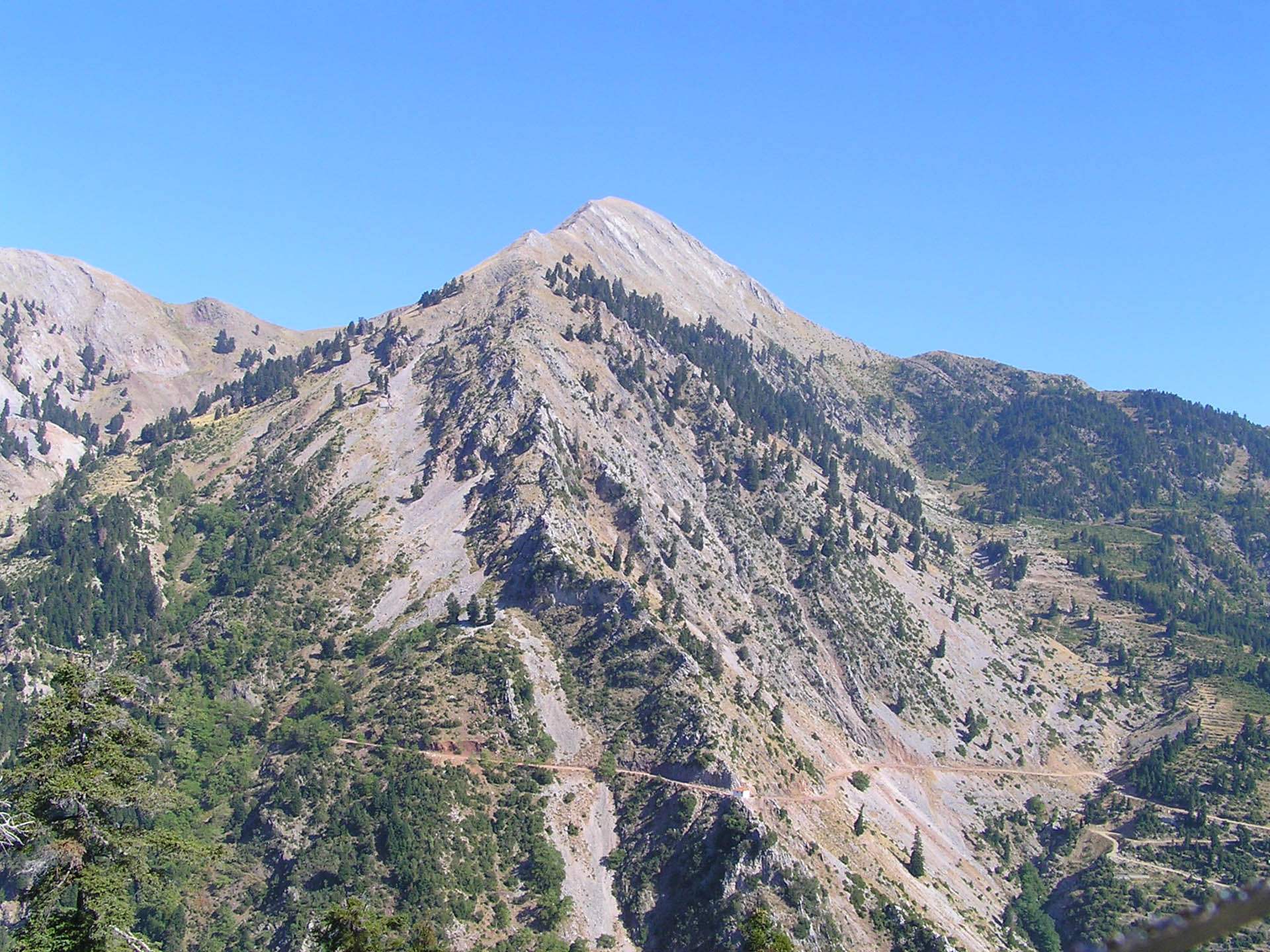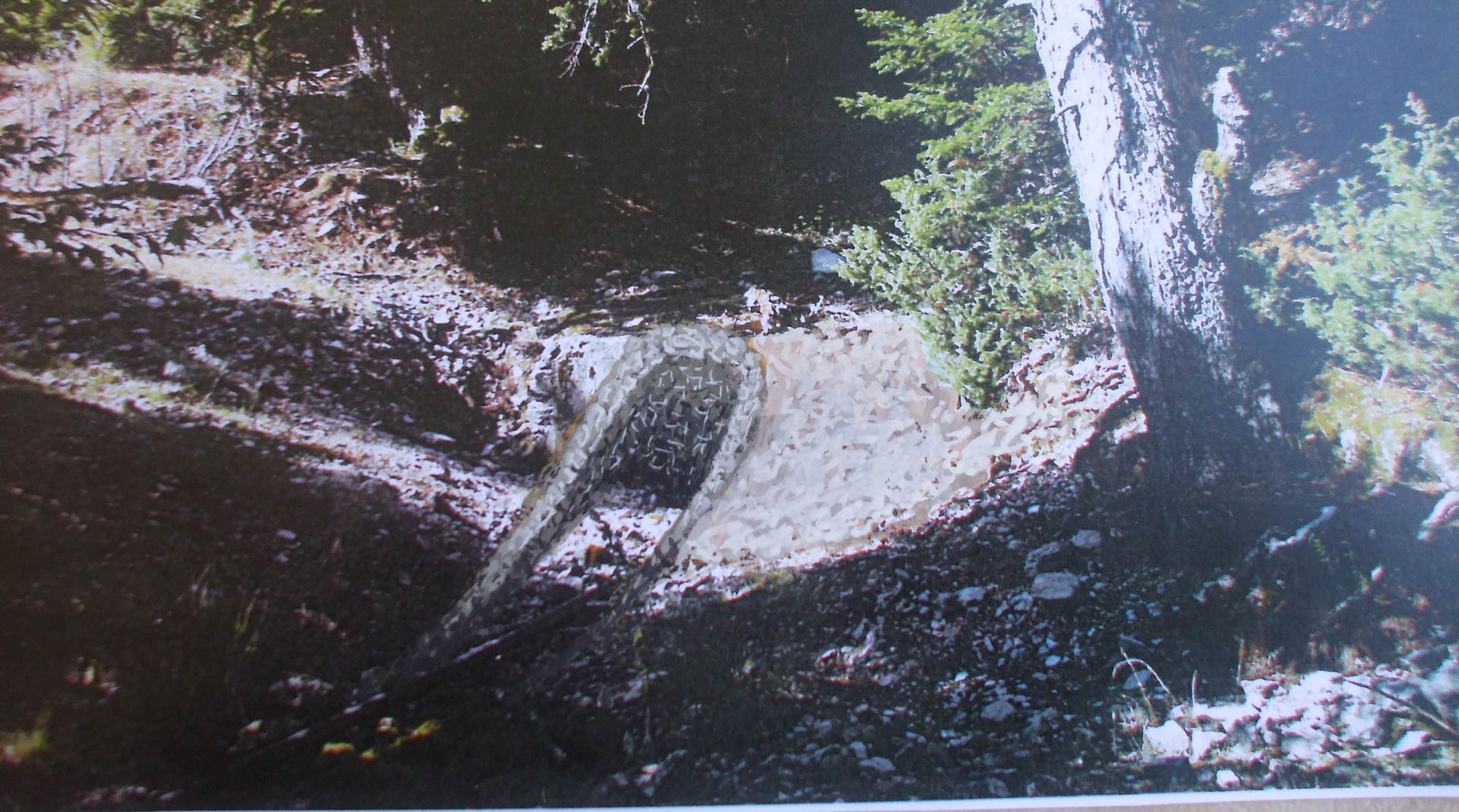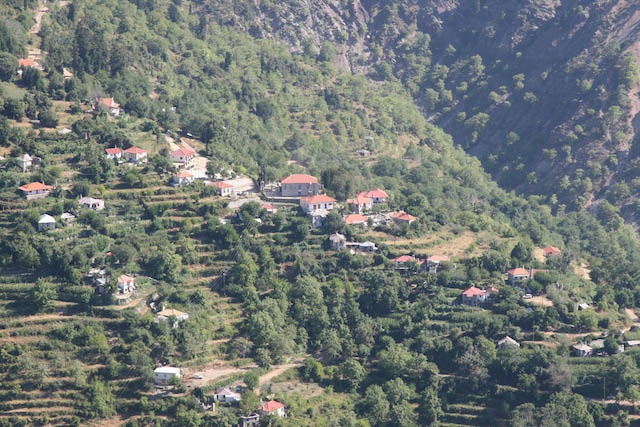The old name of the village was Ge(i)rtovos.
Dr. Ioannis Nerantzis, an archaeologist, states: “The official principle of every place naming is: “the place itself gives the name.”
It is historically and archaeologically proven {see the doctoral thesis of Dr. Ioannis G. Nerantzis, “The land of the Aetolians”} that the village was first settled in this place in ancient times by Greeks, the Ofioneis (a subset of Aetolians). Consequently, it was logical that the village’s name was a Greek word.
Indeed it was Greek. It was “Gorgyra” (or, in ancient Doric, «Gergyra» ), which means an underground drain, a sewer, a yard, or a prison. Over the centuries, the Greek word “Gorgyra “or “Gergyra” turned into “Gertovo(s),” as it sounded in the Slavic language. This is how the name was pronounced by the foreign shepherds (tseligades) who passed through the village and sporadically settled in it.
Another possible version of the Greek etymology of the village name is the following: the S(k)lavic place name – Gertovo (s) is the sound in the Sklavinian / S(k)lavic of the ancient Greek mountain name, Gargaros. Due to the physiognomy of the landscape, the first Greek name of the mountain and the village should be “Gargaros.” The foreign highlanders, seasonally moving with their flocks, especially the Sklavenians = S(k)lavs, knew that the word meant “mountain.”
They had no reason to call the mountain in their S(k)lavic word. They maintained the name but pronounced it slightly altered in their language. So “Gargaros” was pronounced “Gertovo(s).”
Vassilis Papasavvas, a philologist, gives another etymology of the word Ge(i)rtovos. According to the principle that “the place gives the name,” he considers that Mount Triantafyllia, on whose slope the village is built, with its silver-white limestone rocks, hides the secret of the old name of the Gertovos village, today Argyro Pigadi.
According to him, the first compound Gir, is the root of the word Argyro, meaning silver, and it is the root of similar words in ancient Greek, Latin, and other languages. The synthetic -vo, according to V. Papasavvas, is the evolution of the Greek word for mountain: vouno → vno → vo. So, Gir-vo and, finally, Girtovo(s).
Irrespective of the etymology, the term Gertovo or the variants Gertovi or Certovo are found as a place name, company name, etc., almost throughout Europe and mainly in Eastern Europe. Gert is a common male name all over Europe so Gertovo may mean the place or village of Gert.
Looking at other sources about the meaning of the name, it is remarkable that Socrates Zygouris, a teacher and a researcher, believes that the name Gertovos means, in Slavic, Kastanotopos ( = a place of chestnuts), and it is related to the chestnut forest nearby the village.
Also, in the Aetoloakarnanian and Evritanian Encyclopaedia, Volume B, Argyron Pigadion, we read: “In the past, the village was called Gertovos (Giaour – Vo = Greek village).”
This alternative view is accepted by the village’s inhabitants, given that their village did not submit to the Turks, something they are proud of. “The only village that did not bow the head during the Ottoman domination…” says Yiannis Kotsalos. And he continues: The Turks called it Giaοur Ovo, which means Ellinohori (= Greek Village)”.
Finally, Kostas D. Maragiannis, in his book ” Argyro Pigadi (Girtovos) and the church of Saint George,” explains that: “Girtovos means a genuine place and genuine people of our race certainly inhabit it.”
In 1928, according to Yiannis Kotsalos, after the suggestion of Vasilis Dimopoulos, the school teacher at the time, Girtovos was renamed Argyro Pigadi ( = Silver Well).
Until then, this was the name of a crystal clear natural spring and the surrounding greenery, which the traveler comes across as he comes from Nerohori to Argyro Pigadi and sees the village for the first time.
The same point is also recorded in the Aetoloakarnanian and Evrytanian Encyclopedia Volume B, Argyron Pigadion:
“The name of the village is due to the nearby spring source called
“Argyro Pigadi ” = excellent spring, excellent water.”
Nowadays, the spring has lost its shape due to a project to supply water to the village for irrigation and drinking purposes. However, the older people of the village can still remember the image of the silver-colored rocks and the shape of a well.
The painter Yiannis Varsos painted an excellent representation of the spring source based on the description given to him.
The folklorist Dimitris Loukopoulos in his book “Thermos and Apokouro,” gives another interpretation of the name of the site and the source.”We go downhill and arrive at a place with many fields producing corn and beans. Argyro Pigadi ( =Silver Well) is the place that means nothing more than the well of Argyro ( a woman’s name). But one cannot possibly find out who this lady Argyro was because no one knows to tell us.”
Christos Kostopoulos believes the following: “Its name, Argyro Pigadi, is due to its many crystal clear water springs and the many troughs/ cisterns where the August moon mirrors itself. If you were on a hill, you could see the shining water. It was quite a spectacle from the Tsouka top, where the shepherds used to sleep near their sheep. “
A similar opinion is that of Kostas D. Maragiannis: “… the most prevailing view is the one mentioned to me by many inhabitants of the village in the past: that the village was named Argyro Pigadi because, at nights, the full moon shined in the crystal clear water of the village’s wells and cisterns, helped by the clear atmosphere and the east orientation of the village.”
It is a fact that there have not been any wells in Argyro Pigadi, but there are springs with gurgling waters and cisterns/ troughs that function as water reservoirs.
However, this complicated village name has a clear connection with the natural environment, the water, the rocks, as well as the aesthetics of its people.
NOTES
1. Gertovo Village is located near St. Petersburg-Leningrad, Russia. At: http://mapcarta.com/29606004 (Google Maps), we find the map of Bolshoye Gertovo
At http://www.geocaching.com/geocache/GC33QYD_the-baltic-klint-waterfall-on-the-tosna-river – Waterfall on the Tosna River, we read:
The Tosna waterfall near the village of Gertovo is the largest in the Leningrad region.The waterfall is called Tosnensky or Gertovsky by the name of the Tosna River or the village of Gertovo, respectively.
2. In the book of Karl H. Menges: The Turkic Languages and Peoples, we find the reference for the Qyzylbas who live in the region of Gertovo, Bulgaria: “3) The Qyzylbas, very few people, are found in the Deli-Ormanaswellas in and around Gertovo in Bulgaria. They are Muslim sectarians of obviously Siitic affiliation».




